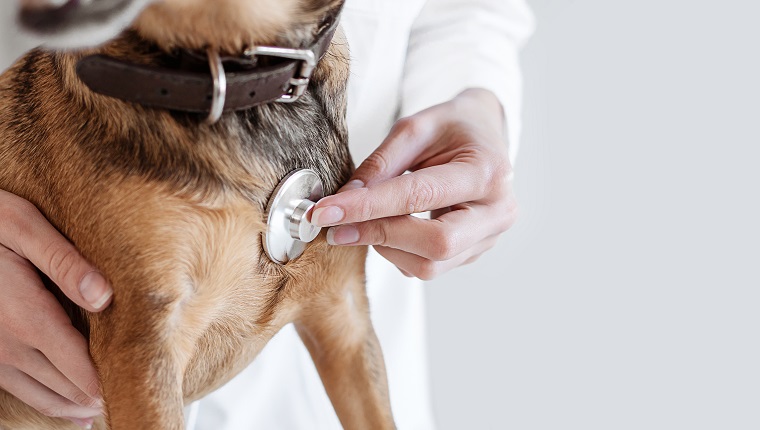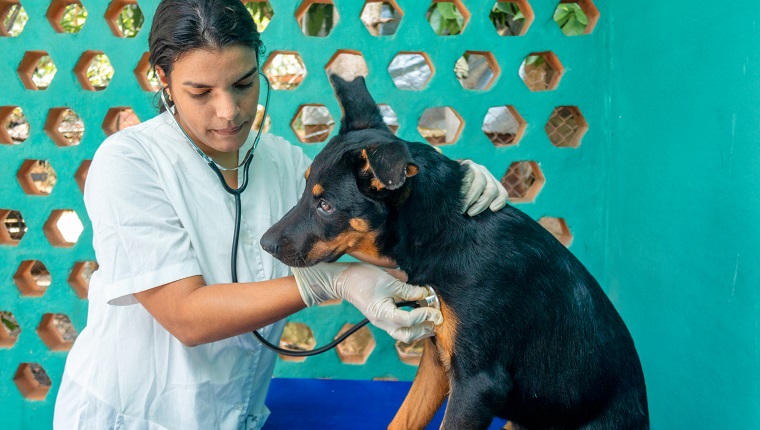Hemothorax in dogs is a medical condition that happens when blood collects in the chest cavity. It’s a serious medical concern because pressure that mounts on the wall of the chest can bring about respiratory distress.
This condition seems to affect all types of dogs equally, regardless of breed, gender or age.
If you see signs that your dog might be suffering from blood accumulating in their chest, then you must consult your veterinarian for a proper diagnosis and course of treatment. Here’s what you should know about the symptoms, causes, and treatments of hemothorax in dogs.
Symptoms Of Hemothorax In Dogs
Hemothorax in dogs brings on a range of symptoms. Some of the most common symptoms include:
- Breathing difficulties
- Breathing very quickly
- Skin and gums turning pale and bluish
- Behaving in a lethargic fashion
Causes Of Hemothorax In Dogs

There are a number of potential causes of hemothorax in dogs. Some of the most common causes include:
- Trauma (affecting the chest area)
- Ingesting rat poison
- Blood clotting issues
- Liver issues
- Congenital issues
- Neoplasia
Veterinary Treatments
If you start to worry that your dog has developed hemothorax, your veterinarian will want to carry out a full physical examination. This will include blood, electrolyte and urine tests.
Your vet will ask a series of questions about your dog’s medical history and also any recent circumstances or incidents that might have caused the condition.
A lab will analyze chest fluid from your dog, while X-rays and ultrasounds can also help vets examine the lungs and chest more accurately.
When providing treatment, the use of fluid and oxygen therapy administered while in hospital is key. Your dog may also need a blood transfusion might if there are clotting issues at play.
While your dog recovers at home, it is important that they have a quiet and relaxed living environment. Additionally, it is best to avoid using any over-the-counter medicines such as aspirin.
Your dog will also need regular follow up appointments with your vet to help properly monitor their recovery.
Has your dog ever suffered from hemothorax? What sort of symptoms did you notice? Tell us all about it in the comments below.









